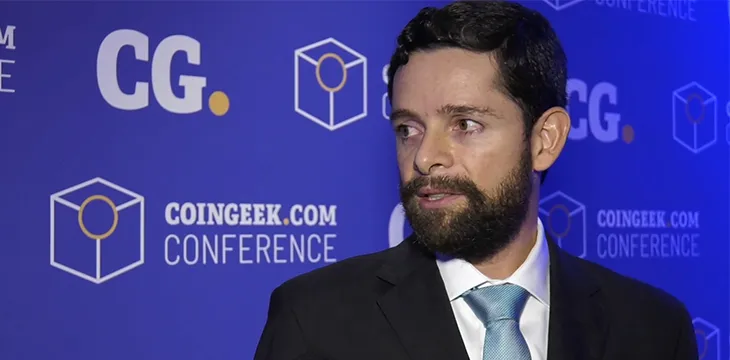|
Getting your Trinity Audio player ready...
|
Blockchain technology can do more than just revolutionize the internet; it can also better the manufacturing industry. Binde, a company that focuses on business to business applications, is specifically focused on building blockchain applications for the manufacturing industry using the Bitcoin SV (BSV) blockchain.
With so many blockchains being developed, CoinGeek’s Becky Liggero asked Binde CEO and co-founder Rogelio Reyna why they opted to go with BSV. “We started off with Ethereum, but we very soon realized that it was not the right blockchain for us, it was not the right tool,” he said. “This concept of gas is flawed. In gas, you have a market for computational power, which is compound with the market for Ethereum. So your fees are highly volatile. More volatile than the Ether or the gas themselves. They multiply. So it was just a no go.”
The advantage of BSV is its extremely low transaction costs, which is necessary to the extremely frequent, and sometimes micro needs of a manufacturing supply chain. “The type of application we’re trying to build, connecting industrial machinery, talk to each other, and send value to each other, needs microtransactions,” Reyna said.
That’s not the only reason Binde believes in BSV. “We stay with Satoshi Vision,” their CEO said, noting that they need the stability that only BSV can offer. He elaborated:
“We develop applications, and we need a stable protocol. So that’s why we decided to support Satoshi Vision. Not support it, we believe that we are being supported by BSV so we are building on top of it. We cannot build on to of something that is changing. It just makes no sense to move to other blockchains that will have different types of issues, especially security issues.”
Binde is starting to branch out now that it has found a stable partner in BSV, the only crypto to follow Bitcoin’s original vision. “We have a couple of projects in the pharmaceutical industry,” Reyna confirms. “Going forward, in the midterm, we believe that we can enable heterogeneous, flexible manufacturing plants. That means, under one roof, to have not one but multiple economic units. Multiple companies that will coordinate to assemble production lines that will actually generate and solve some productivity issues.”
With BSV, he believes they can change the way the manufacturing industry calculates their costs and profits for supply chains. “What we think that we can do is that when a particular person buys a particular good or service from the store, that we can automatically disperse the value across all the different parts of the value chain,” he explains. “Not just the supply chain, but the value chain. That includes support departments, or support units.”

 07-09-2025
07-09-2025 





